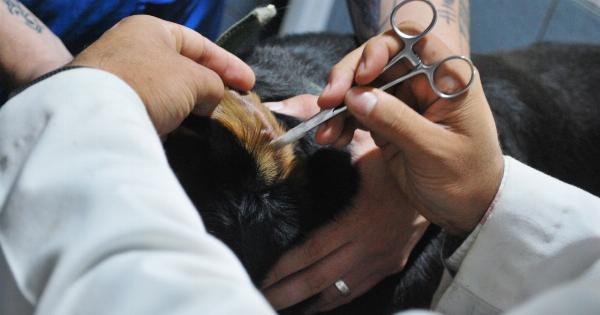Summer is a time for outdoor activities and enjoying the warm weather. However, it can also bring about certain health issues, one of which is summer ears.
Whether you are heading to the beach, going camping, or simply spending time outside, it is important to be aware of the causes, prevention, and treatment of summer ears. This guide will provide you with all the essential information you need to know to keep your ears healthy and protected during the summer months.
What are Summer Ears?
Summer ears, also known as swimmer’s ear or otitis externa, is a condition characterized by inflammation or infection of the outer ear canal. It commonly occurs during the summer months due to increased exposure to water.
When water remains trapped in the ear canal, it creates a moist environment that promotes bacterial or fungal growth, leading to infection or inflammation.
Causes of Summer Ears
Several factors can contribute to the development of summer ears:.
- Prolonged exposure to water: Spending long hours in the pool, ocean, or even in the shower can increase the risk of water getting trapped in the ear canal.
- Humidity: High humidity levels, prevalent in summer, can cause excessive moisture in the ear canal, creating a conducive environment for bacterial or fungal growth.
- Injury to the ear canal: Scratching the ear canal with sharp objects or aggressively cleaning the ears can cause small tears or abrasions, allowing bacteria or fungi to enter and cause an infection.
- Chemicals: Exposing the ears to certain chemicals present in pool water or hair products can irritate and disrupt the natural protective barrier of the ear canal, making it more susceptible to infection.
- Earwax buildup: Excessive build-up of earwax can trap water in the ear canal, increasing the risk of infection.
Prevention of Summer Ears
Fortunately, there are several preventive measures you can take to reduce the risk of developing summer ears:.
- Keep ears dry: After swimming or bathing, gently towel-dry your ears and tilt your head to each side to help any remaining water drain out.
- Use earplugs or swim caps: If you are an avid swimmer, consider using earplugs or wearing a swim cap to prevent water from entering the ear canal.
- Avoid inserting objects into the ears: Keep cotton swabs, hairpins, or any other objects away from your ears as they can damage the delicate ear canal and increase the chances of infection.
- Avoid excessive cleaning: While it is important to maintain ear hygiene, avoid overcleaning your ears as it can disrupt the natural protective mechanisms and increase the risk of infection.
- Use ear drops: If you are prone to frequent ear infections or work in a profession that involves exposure to water, consider using over-the-counter ear drops that help dry excess moisture and prevent infection.
- Wear ear protection: If you engage in water activities such as diving or surfing, wear ear protection such as earplugs or a diving hood to prevent water from entering the ear canal.
Symptoms of Summer Ears
The following are common symptoms associated with summer ears:.
- Ear pain, particularly when touching or pulling the ear
- Itching or irritation in the ear canal
- Redness and swelling of the outer ear
- Discharge from the ear, which may be clear or have a foul odor
- Difficulty hearing or a sensation of fullness in the ear
Treatment of Summer Ears
If you suspect you have summer ears, it is important to seek medical attention for an accurate diagnosis and appropriate treatment. Depending on the severity of the condition, the treatment options may include:.
- Prescription eardrops: Your doctor may prescribe eardrops that contain antibiotics or antifungal agents to treat the infection.
- Pain relief: Over-the-counter pain medications such as acetaminophen or ibuprofen can help alleviate ear pain and discomfort.
- Ear cleaning: In some cases, your doctor may need to clean the affected ear canal to remove the discharge and facilitate healing.
- Oral antibiotics: If the infection is severe or spreads to the surrounding tissues, oral antibiotics may be prescribed to combat the infection.
- Management of underlying causes: If earwax buildup or other underlying causes contribute to the development of summer ears, your doctor may suggest appropriate measures to address these issues.
When to Seek Medical Attention
It is important to consult a healthcare professional if you experience the following:.
- Severe ear pain that does not improve with over-the-counter pain relievers
- High fever
- Swelling or redness that spreads to the face or neck
- Severe dizziness or vertigo
- Drainage of pus or blood from the ear
Conclusion
Summer ears can put a damper on your sunny days but by following these preventive measures and seeking timely treatment, you can enjoy the summer season without the discomfort of ear infections.
Remember to keep your ears dry, avoid inserting foreign objects into them, and seek medical attention if symptoms persist or worsen. By taking good care of your ears, you can ensure that they stay healthy and ready for all the summer adventures that lie ahead!.



























